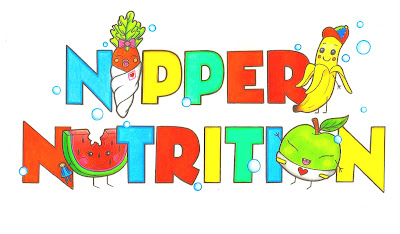Parenting:top tips for ousting childhood obesity...
With one in three children starting secondary school overweight or obese, the prevention and early intervention of childhood obesity is essential for decreasing the incidence of premature death and disease.
In order to ensure that your youngster avoids accumulating additional weight (or shifts it safely), here are our top three tips for fighting the flab at an early age.
1. Slash their sedentary state by encouraging exercise.
As tough as it may be to lure your little'un away from the temptation of technology, encouraging them to enjoy exercise is paramount for the prevention of adult and childhood obesity - particularly as those who develop a positive perception of physical activity during childhood are much more likely to lead an active lifestyle throughout adolescence and adulthood.
If your youngster is susceptible to shunning sport in favour of slouching on the sofa, aim to make moving more more appealing by adapting activity to suit their age - think wildlife walks for tinier tots who adore animals and/or are besotted with bugs, and a child friendly obstacle course for older children who are capable of climbing without an adult's assistance.
2. Slash their portion sizes.
Although this swap may sound simple, it's one of the easiest (and safest!) ways to eliminate the excess energy that contributes to adult and childhood obesity (as well as the development of obesity related diseases such as heart disease, type 2 diabetes and certain cancers) without driving your youngster to develop a disordered relationship with food - an abnormal action that often stems from forcing children to resort to a restrictive diet and/or forbid specific food sources in an attempt to oust an accumulation of additional weight.
3. Don't forget their diet.
Exercise may be essential for eliminating the excess energy that tightens your tot's trousers, but it won't eliminate the negative effects that a detrimental diet derived from fast food and sugary snacks has on their health - think tooth decay (sugar), high cholesterol (saturated fat) and hypertension (salt). In fact, with the majority of childhood obesity cases resulting from an energy imbalance i.e. the average child is consuming more calories (energy) via food and fluid than they're expending via exercise and activity, controlling their overall caloric consumption (and ditching detrimental dishes and desserts from their daily diet) is essential for ensuring that their risk of obesity is reduced.
Final thought: although obesity is a complex condition that's difficult to diminish once established, it's not impossible to eradicate - particularly if parents and schools are willing to work together in order to ensure that little'uns lead a healthy and active lifestyle.
www.twitter.com/N_NutritionUK
https://www.facebook.com/NippersNutritionUK/
In order to ensure that your youngster avoids accumulating additional weight (or shifts it safely), here are our top three tips for fighting the flab at an early age.
1. Slash their sedentary state by encouraging exercise.
As tough as it may be to lure your little'un away from the temptation of technology, encouraging them to enjoy exercise is paramount for the prevention of adult and childhood obesity - particularly as those who develop a positive perception of physical activity during childhood are much more likely to lead an active lifestyle throughout adolescence and adulthood.
If your youngster is susceptible to shunning sport in favour of slouching on the sofa, aim to make moving more more appealing by adapting activity to suit their age - think wildlife walks for tinier tots who adore animals and/or are besotted with bugs, and a child friendly obstacle course for older children who are capable of climbing without an adult's assistance.
2. Slash their portion sizes.
Although this swap may sound simple, it's one of the easiest (and safest!) ways to eliminate the excess energy that contributes to adult and childhood obesity (as well as the development of obesity related diseases such as heart disease, type 2 diabetes and certain cancers) without driving your youngster to develop a disordered relationship with food - an abnormal action that often stems from forcing children to resort to a restrictive diet and/or forbid specific food sources in an attempt to oust an accumulation of additional weight.
3. Don't forget their diet.
Exercise may be essential for eliminating the excess energy that tightens your tot's trousers, but it won't eliminate the negative effects that a detrimental diet derived from fast food and sugary snacks has on their health - think tooth decay (sugar), high cholesterol (saturated fat) and hypertension (salt). In fact, with the majority of childhood obesity cases resulting from an energy imbalance i.e. the average child is consuming more calories (energy) via food and fluid than they're expending via exercise and activity, controlling their overall caloric consumption (and ditching detrimental dishes and desserts from their daily diet) is essential for ensuring that their risk of obesity is reduced.
Final thought: although obesity is a complex condition that's difficult to diminish once established, it's not impossible to eradicate - particularly if parents and schools are willing to work together in order to ensure that little'uns lead a healthy and active lifestyle.
www.twitter.com/N_NutritionUK
https://www.facebook.com/NippersNutritionUK/



Comments
Post a Comment